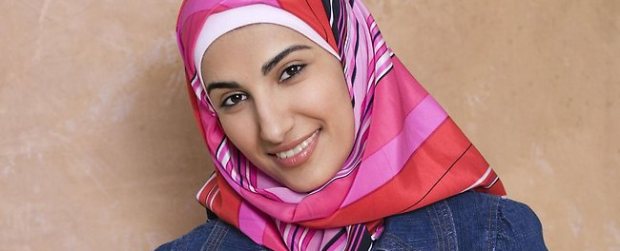A week and a half ago my friend read an article written by a Muslim feminist for a senior seminar class. The author argued that the hijab was a symbol of empowerment and dignity for women. She claimed that the hijab allows women to avoid being objectified in public, keep their privacy, and is also a symbol of her religious\cultural beliefs. Living in the United States I can only speak for American opinions, but the hijab has sparked a lot of controversy. Many see it as a symbol of oppression and I want to dig a little deeper before making such strong statements about a single piece of clothing.
I want to state that the hijab itself should not be a problem. The hijab is merely an article of clothing and I’m pretty sure people in the United States are free to dress as they please (unless you’re naked in certain parts of the country). So wearing a hijab itself shouldn’t offend anyone. Sure you can tell that a particular person is of Islamic faith, but again we are granted rights to religious freedom as well. In addition Muslims, given the choice, are quite divided on the topic. I can speak from personal experience because I know a handful of Iranian women that do not cover their heads while living in the United States. At the same time we also see women who choose to wear a hijab, and some of those women are people I consider my close friends.

I think the main issue is with Middle Eastern society and not with the actual hijab. A law mandating head coverings can definitely be called oppressive. In reality head coverings have become an expectation in some more orthodox Muslim states, rather than a mandated article of clothing *. There is a factor of intimidation as some Muslim women fear the repercussions of venturing outside without an article of clothing to cover their heads. Many Middle Eastern countries have made strides in giving women the choice of whether to wear a hijab or not, but cultural expectations held by conservative men within society is definitely an intimidation factor. This idea that a third party can influence clothing choice is really what’s turning heads, not the hijab. This influences some Americans to associate the hijab with oppressive behavior that may occur in the Middle East.
What I really wanted to distinguish between is the societal pressure that women face and the choice that muslim women make as individuals. Some women who wear a hijab in the face of oppression would choose to do so otherwise. However, the idea that someone else is verifying your personal decision for you can be quite off-putting; imagine someone telling you your head covering is not adequate or having to wear a face veil instead of just a scarf. From the flip side, all of us in the western world are familiar with the oppressive nature of some conservative individuals within the Middle East. This bias sometimes gets misdirected towards random hijab-wearing women. You see a woman walking down the street and you start to think that she is a supporter of oppressive behavior. Contrary to that, her decision to wear a hijab is completely independent of whatever anyone else says or thinks and is a decision that represents her personal beliefs. That’s really all there is to it.
If you truly care about women’s rights, then you are better off fighting the judgement of the hijab from both sides and supporting a woman’s freedom to choose. Intentions are very important and while women are meeting societal expectations (from more conservative muslims) of their own choosing, it is not the same as giving them an environment where they are completely empowered to choose for themselves, regardless of what their choice is.

I may write more about this in the future, but for some perspective this problem is not unique to Middle Eastern countries. Conservative parts of India expect women to cover their knees and saris pretty much accomplish that. Being Indian, I know a significant amount of Indian women that wear saris every day and would do so regardless of societal expectations. This issue also comes down to respecting a woman’s right to choose and I don’t really see anyone ostracizing women who wear saris in the United States (in general of course).
Small disclaimer: You may agree or disagree with me, but all I am really asking for is that both extremes take a minute to respect the freedom of individual choice. At the same time if you disagree with me that’s fine. I do not change laws or societal expectations and you as members of your own communities determine what’s right for your environment.
*Iran is an example of a country that mandates head coverings, not sure if there are more
If you feel strongly about this issue let me know what you think in the comments! I have a bunch of friends that are all over the place concerning this topic and I’ve managed to respect their opinions so far.
